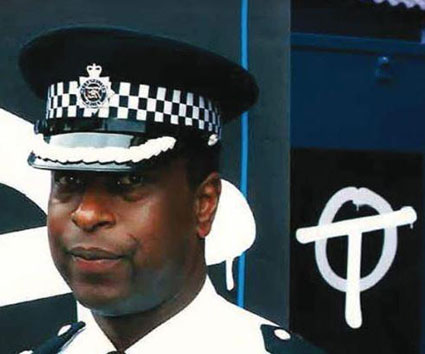The short stories contained in Nana Kwame Adjei-Brenyah debut collection “Friday Black” have a startling way of mixing everyday realism with the fantastic. Many characters are working class individuals struggling to keep their families going while labouring in retail or the night shift at a warehouse. But at the same time they can also be imbued with powers from a Twelve-tongued God, become a spirit who knows how to quell the murderous impulses of bullied boys or a 14 year old female super killer who survives daily nuclear explosions. Violence abounds throughout the stories. There are crazed shoppers who kill everyone in their way to get to sale items and there are groups who commit bloody acts of violence in retaliation for racially-motivated murders. The author amplifies some of the most contentious social issues of today in scenarios which are sadly not far from the truth. Everything from gun control to racism to abortion to genetic engineering are integrated into warped versions of reality giving a new view on these hot topics. The stories are powerfully imaginative while being darkly funny as well as heartbreakingly emotionally honest.
Some of these tales worked better than others for me. I admire how in 'The Finkelstein 5' the story switches back and forth between two narratives. One half portrays a court trial where a white man is exonerated for beheading five black children with a chainsaw. The other half is from the perspective of a narrator who becomes part of a “Naming” gang that tortures random white people while calling out the names of the slayed black children. It felt really effective how this dual story describes a society where facts and truth have become so twisted up in the willpower of belief. The defence lawyer says at one point “if you believe something, anything then that's what matters most. Believing. In America we have the freedom to believe.” In a justice system that has allowed so many rank instances of injustice to go unpunished, it’s tragically unsurprising that some feel vigilante justice is the only option available. But this story gets at the ambivalence of such a path while delivering a riveting tale that’s a cross between an episode of Black Mirror and The Purge film series.
Not all of the stories conjure up wild fantasies or show instances of extreme violence. Another story ‘The Lion & The Spider’ also uses an alternating dual narrative where in one half a father tells his children stories based in Caribbean folklore. The other half shows a young man left to care for his ailing mother while finishing school and working a job after the father unexpectedly leaves for a long period of time. This creates an emotionally-charged atmosphere within the story as feelings of youthful innocence are paired against the onerous responsibilities of a premature adulthood when a father shirks his duty. Some of the most touching moments in this collection come when well-meaning children are forced into being carers for their parents such as a young man who takes his father to a labyrinthine hospital in 'The Hospital Where' or a young man who wants to win a jacket for his mother in a sales-driven retail competition.
The violent chaos of a Black Friday sale.
Sometimes the creative slant the author takes on certain issues doesn’t work quite as smoothly. 'Lark Street' describes a man who comes under the accusatory gaze of his girlfriend’s aborted twin foetuses. While the story takes seriously this emotionally harrowing dilemma it felt like it revelled a little too freely in the grotesque nature of such a scenario. Equally 'Light Spitter' which describes an instance of a campus gun slaying relies a little too heavily on conventional ideas of angelic influence – even with the twist that even the “irredeemable” has a moral core. Still other stories have a surprising degree of repetitive elements like the diligent mall employees in both 'How to Sell a Jacket as Told by IceKing' and ‘Friday Black’. But the later title story felt much more successful in hilariously playing up what’s become the most ridiculous post-Thanksgiving annual retail tradition.
One of the most striking things about this book is the consistent feeling that working class young people are frequently forced to compromise their values and education in order to make a living. Sometimes individuals must play into racial stereotypes or swallow their pride in the face of blatant racism in order to maintain their jobs. There are also asides which testify to being made to feel otherness: “A nurse called out sounds that we understood as her attempt to pronounce our last name.” Such feelings are most dramatically described in the story 'Zimmer Land' where an employee submits to being the continuous victim in violent role playing scenarios that are purportedly about “interactive justice engagement”. This story cleverly portrays the hypocrisy of profit-driven initiatives that claim to teach morality but actually perpetuate stereotypes and bigotry. I’m impressed how daring and forceful the author is in creatively describing instances of painful injustice and social inequality. He’s certainly an impressive new author well worth paying attention to.




























